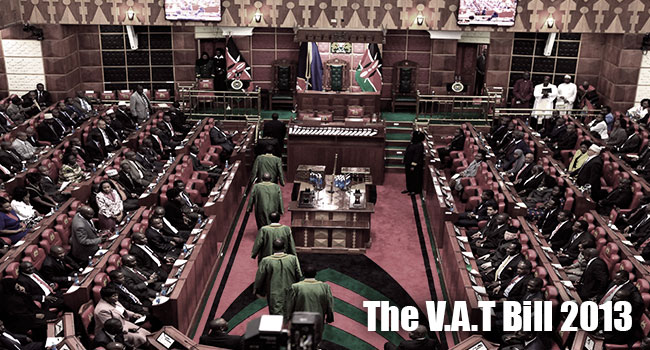The V.A.T Bill 2013

The Parliament has now tabled a Bill (Value Added Tax Bill 2013) which seeks to introduce 16 percent tax on basic commodities as well as essential services. This affects electricity, food, medicine and agricultural inputs. This is a bid to reduce the number of zero-rated items so as to address huge tax refunds owed to businesses by the Kenya Revenue Authority (KRA).
The move has received an unwelcomed response from Kenyans together with various groups such as the civil society and the Consumers Federation of Kenya (COFEK). This has been evinced by protests held to lobby the government to desist from legalizing this Bill. Majority of Kenyans hail from poor households and are forced to survive on less than a dollar a day. The argument is that if the Bill is passed, its ramifications will be felt both economically and socially and will expose many Kenyans to harder times. This is basically because the Bill touches on the prices of basic commodities that include maize, milk, bread, flour and sanitary towels. Consequently the prices of these commodities and services are set to increase. By making it harder to access such basic goods and services, the government will be creating a leeway that will see an increase in insecurity incidents, exposure to diseases and an overall collapse of the economy as we will be forced to reduce our food production levels and heavily rely on imported food.
The Bill also seeks to strip the President, Kenya Defence Forces or any other service, disabled and physically handicapped persons of their zero-rate status and subject them to taxation. Any bill/law that endeavors to frustrate the spirit of the Constitution should be cast aside. Article 43 of the Constitution provides that every person is entitled to the highest attainable standard of health, adequate food and social security. The state has the responsibility of ensuring that these are made available, rather than giving with one hand (the Constitution) and taking away/ denying with another hand (The VAT Bill).


